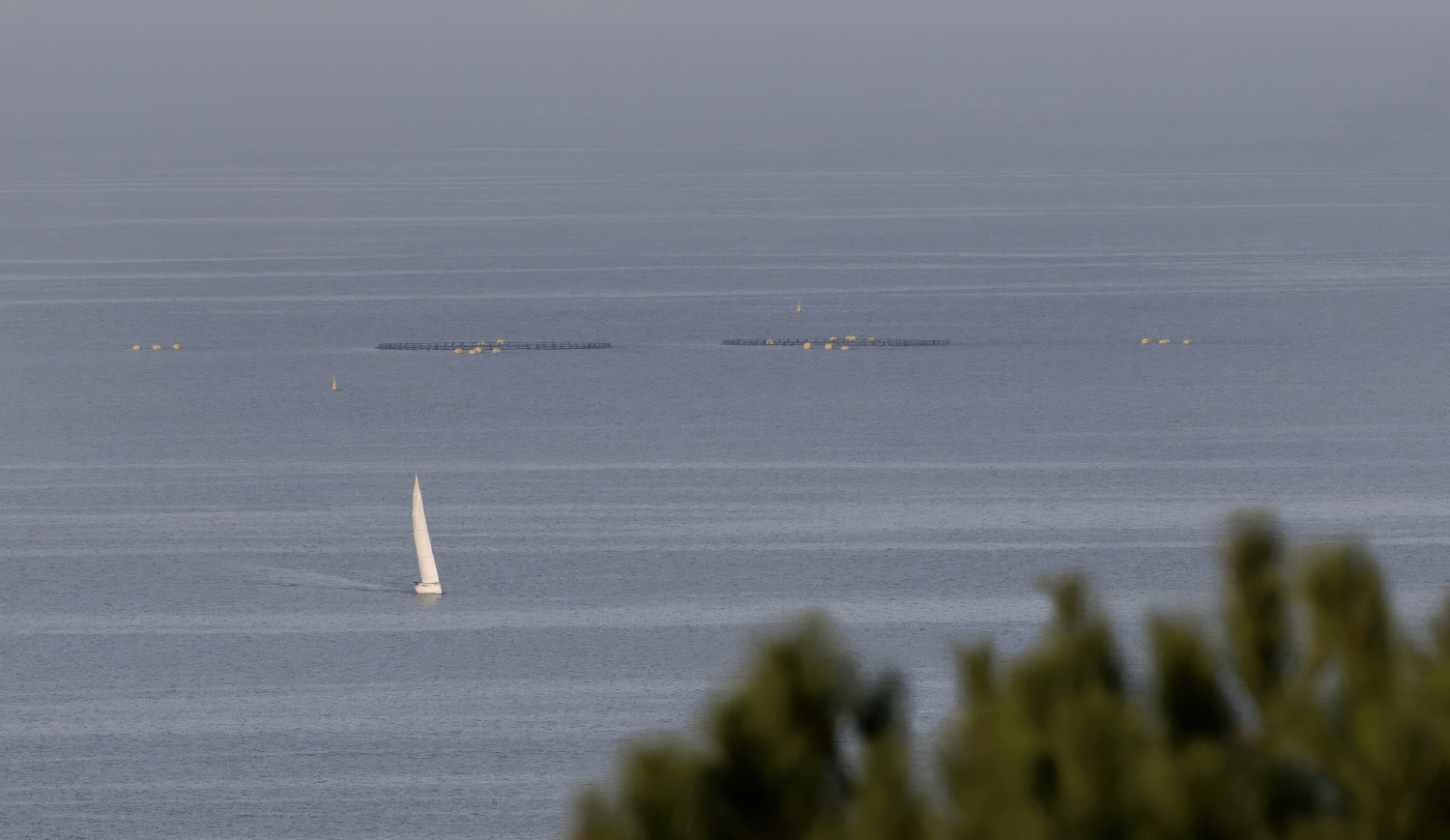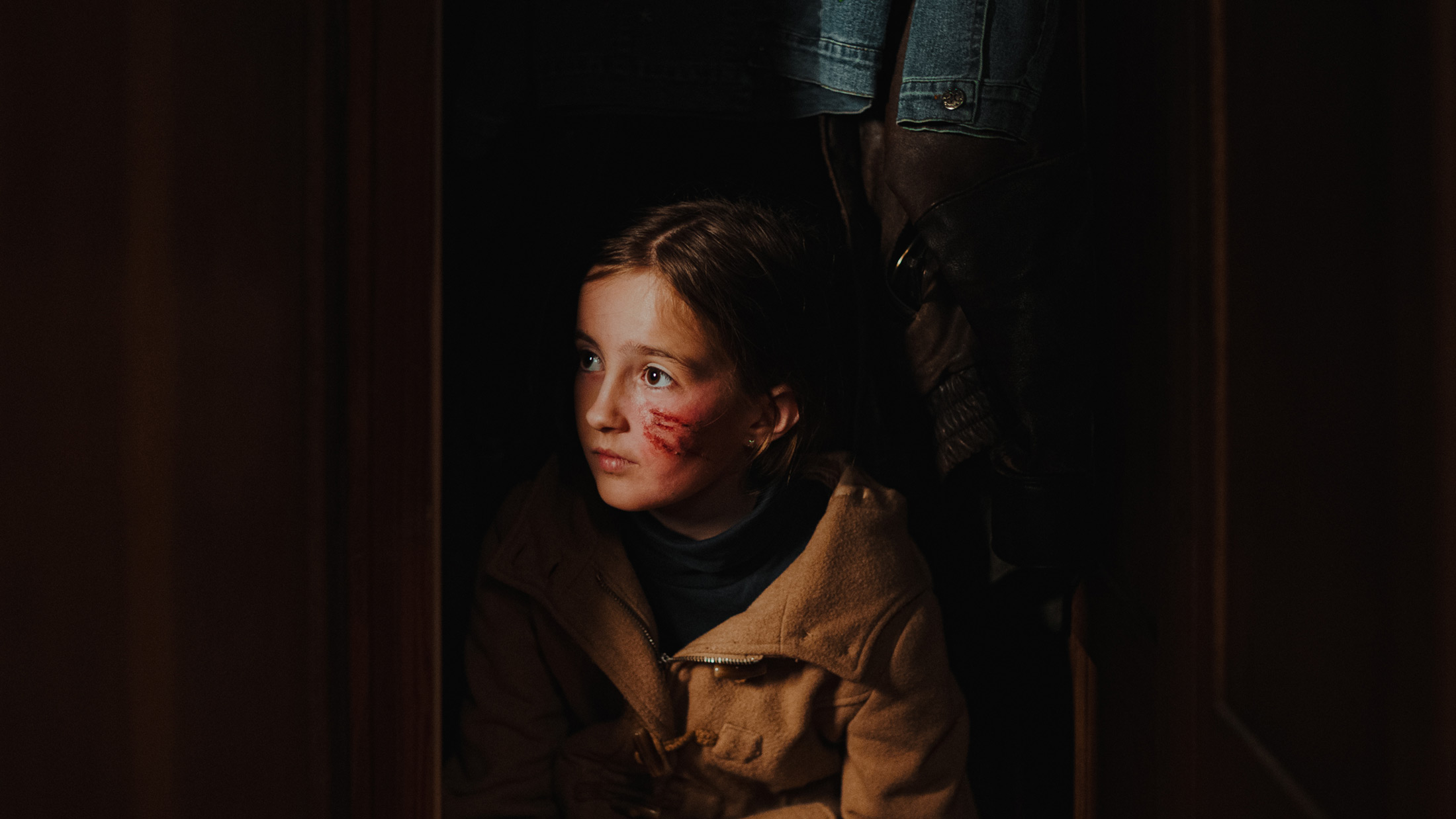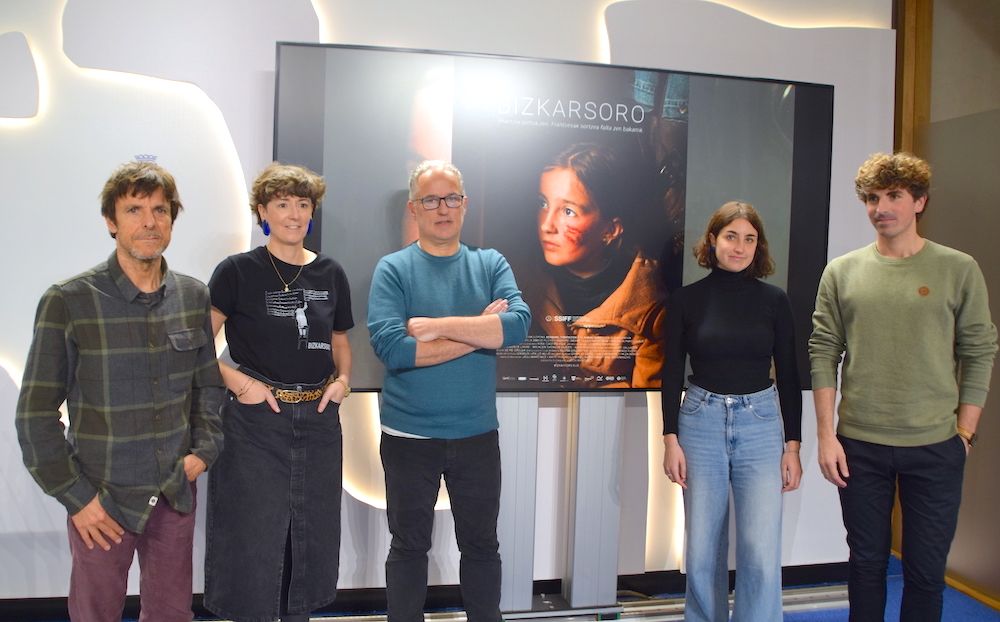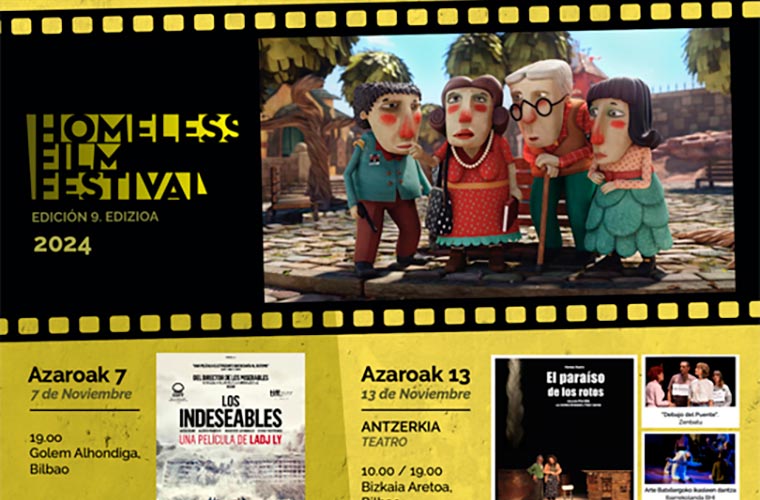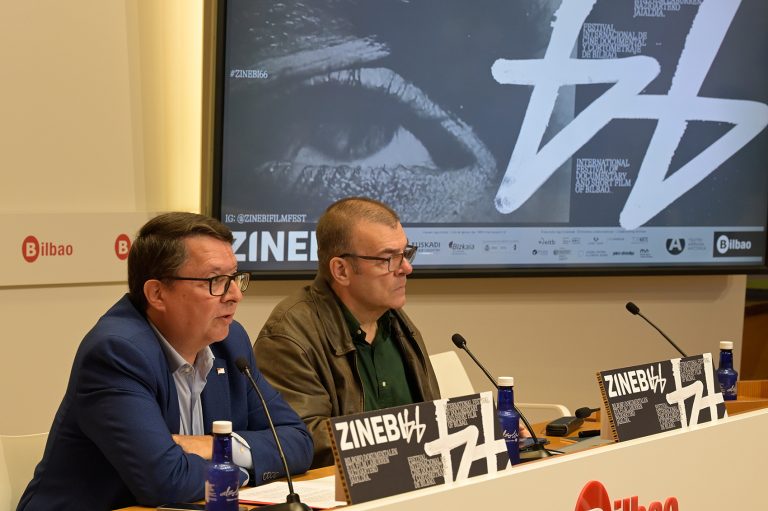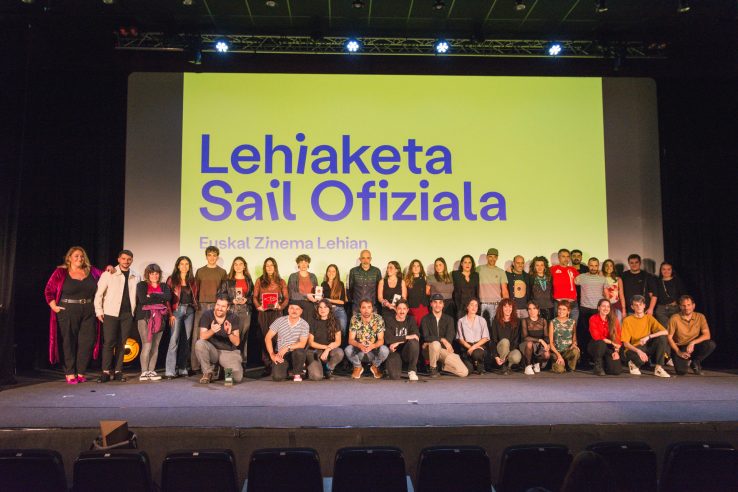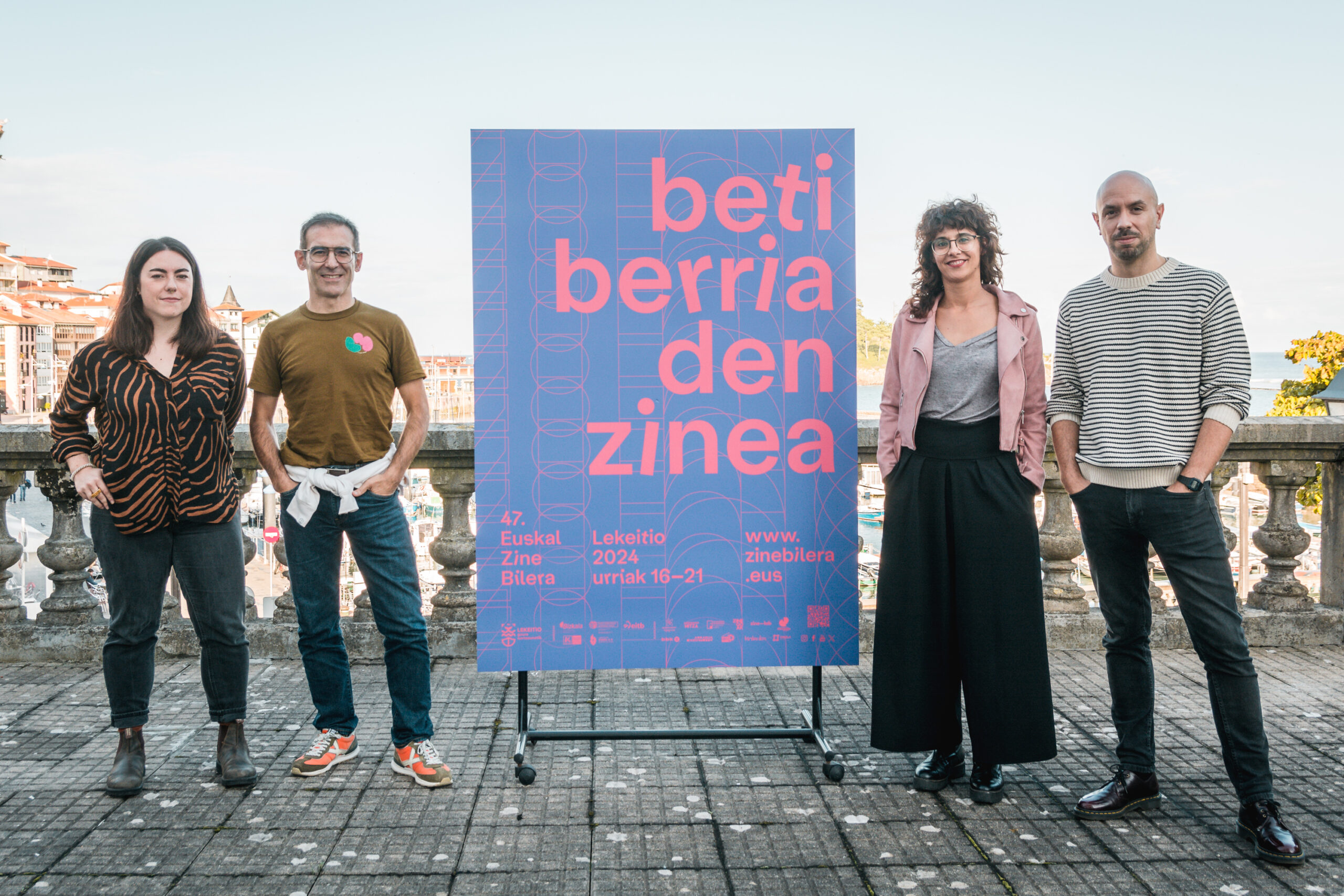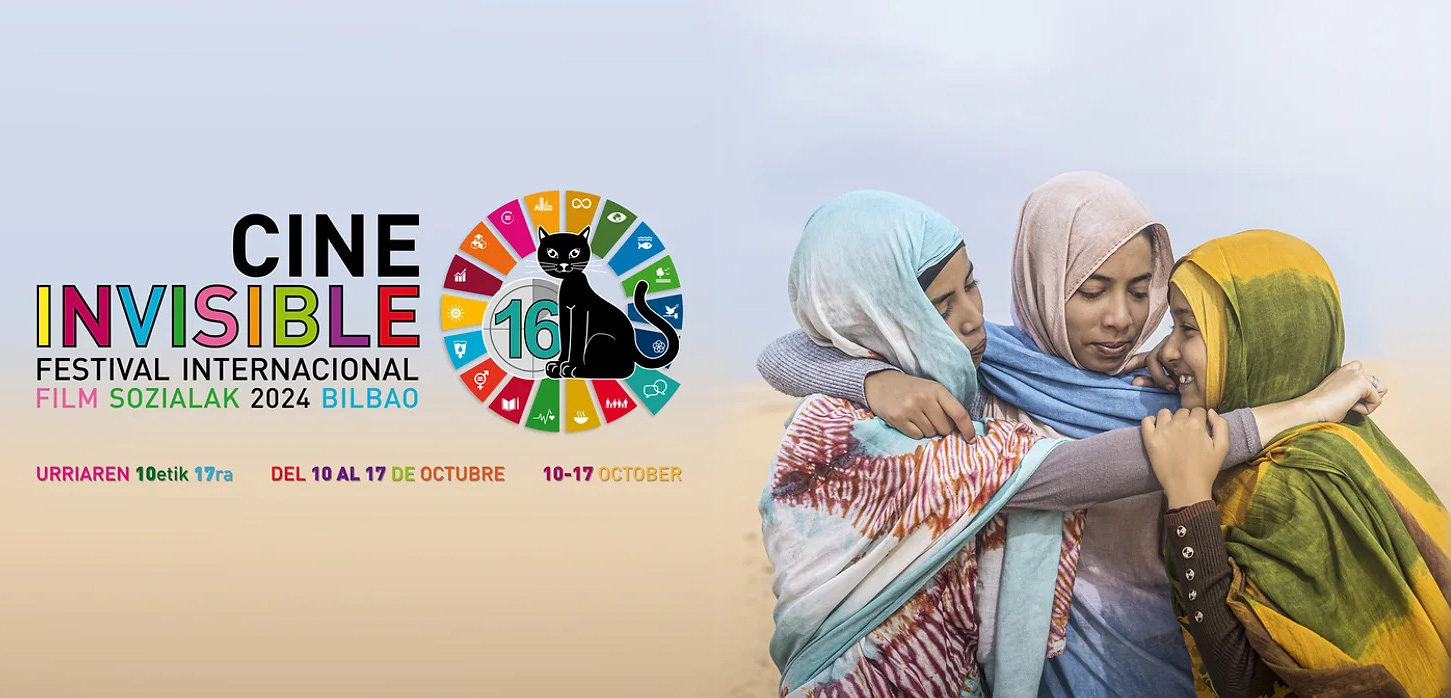"The renewal of the imaginary is as necessary as the restoration of the bathrooms"
- The Durandean actor Eneko Sagardoy, among others, is one of those who has to give no for the agenda of Aste Nagusia. In addition to his dedication to interpretation, Aitor Arrangi and Jon Garaño are in charge of staging the work of the Giant of Altzo, currently directed by Aitor Arrangi. A perfect excuse to answer questions about the film and many other issues that will be released in 2017.

How many times you were asked, surprised: Are you 94?
Many times, yes. Sometimes they tell me: “Fuck, how lucky you are, so young and so many jobs,” as if it were chance. It fascinated me from time to time, because I know how much is behind it. But I know that what you are telling me also has cause to amaze me. That should not be the case, but unfortunately it is not the case.
Not many of the young actors we see on screens and scenarios like you. Are there?
I have had the opportunity to work with experienced professionals: Patxo Telleria, Mikel Martinez, Ander Lipus… I am very grateful for that. But I've often missed attention with people of the same age. I want to share responsibilities and enthusiasm for what starts with people who are in a situation similar to mine. But it's not because there's a lack of young actors. There's a lot. We see no space to show their capabilities. Recently, 200 young people have been presented for a casting for the play Romeo and Juliet, which was called by Pavilion 6. There are many juvenile formats waiting, and some live outside because they don't have the opportunity to work here.
And you, in the meantime, can't breathe.
“In today’s
popular initiatives culture is understood as a mere leisure activity”
The truth is, yes. Right now, in addition to Aundiya, I'm working in the Love cell, in the male and female basement, and in the Zergatik Jamil theater plays. And meanwhile, in the pre-production of another winter film and in the preparation of a theater play that will be premiered in autumn. All this while studying the Degree in Audiovisual Communication.
However, at every moment, before each action, I say: “I want to be here and now, not anywhere else.” I don't look very much at the future or the past. That's the challenge, being connected to the moment. If you don't, you lose a lot.
You have to live in the middle.
I see people who are immersed in popular movements, and I often tell them that they're not enjoying life, that they live alone for that. They answer with the same thing. The truth is that I also have this pity, I cannot be more immersed in popular initiatives, but I think I am also influencing other ways…
You've made it easy for me to ask complicated questions. How do popular movements combine with creation?
In today's popular initiatives, culture is understood as a pure leisure activity, as a compliance element, and in a non-responsible way. Calls are: “We need them to fill us with a hole… unless people get a little excited…” But art is not a component. People don’t see the training work behind the theater, preparing texts and papers… And it’s hard for us to realize that ours is also or can be a trade.
Many times it has touched you to work for free.
In Euskal Herria, auzolan and militancy are deeply rooted, and I have always seen in my environment that culture of will. I have done the work for free, but it would also be necessary to specify what that is: sometimes I have learned a lot in short films made without a penny, and in very well-charged projects, I have lost my health. Money is not a solid filter. That does not mean that we do not have to claim the value of our work. A plumber always asks what he's going to charge, right? We, on the other hand, have complexes to present a budget.
Some are heading for Madrid or Paris in search of conditions and economic stability that they do not achieve here.
“We cannot work in fiction, even if we have a public television.
How aren’t people going to Madrid?”
It gives me peace of mind to know that if I am not given a job, I will be able to create jobs on my own. What is the key to this? Training. I like to think that gives me some autonomy. Decision-making capacity above economic criteria. If I were to go to Madrid, it would be more because I need the experience of living in a big city than to get a job.
In Madrid yes, and there is hardly any audiovisual fiction here. Movies like LOREA or AMAMA have been successful, but they are only projected in less than two hours of an entire year. What do we have to see for the rest of the days?
That is what I ask. At the moment, how many jobs do the Basque actors have? There is almost no possibility of working in audiovisual fiction. A great movie a year, which gives temporary work to a few actors, and almost nothing on television. Despite being a public television, we cannot work on fiction. How are people not going to Madrid? How are we not going to work here and there in short films and so on? If that’s the only way to keep us trained and working…
Imagine a plumber who has to start repairing the bathroom to his friends, or why not, painting because nobody, in the whole of the Basque Country, is damaged by the tubing. Just as you have to fix toilets, you also have to renew your imaginations, you have to water your imagination. This people needs a new fiction, it's a necessity. To do this, someone has to write scripts, someone else accepts them and we work. If we do not have the opportunity to do so, this wheel is standing.
We have been talking for almost an hour and I have not yet asked him anything about Aundiya. Whoever has found you somewhere else will think: the truth is that Sagardoy is not so big...
The first thing that occurred to me when I was called the head of Casting was that: I lack the body for that… But we have taken advantage of the magic of cinema to give to the viewer Aundiya.
Measures, has it cost you to put yourself in the fight of the Giant of Altzo?
A lot, yes. That has been the hardest thing. I'm still working on it. The weight of religion and dwelling in the 19th century is far from my current concerns. I have also had to deal with the pains and fears of a person who grows constantly; I have fought with the dialect and voice… It has been very difficult, but with the difficulty also comes pleasure. Going every day to work with this challenge has made me feel very alive.
How much will the fictional movie have and how much does it have?
“Aundiya does not tell the biography of Joaquín Eleizegi: it is a story of friendship between two brothers”
Little contrasting information has come to this day. That gave freedom to the writers and also to the actors. In addition, Aundiya does not tell the biography of Joakin Eleizegi: it is a story of friendship between two brothers. A special feature is that one of the siblings undergoes a violent change that affects both of them. It is a film that appeals to very basic feelings. It seems that over time we will go further, but in the 19th century and now we have the same concerns and fears.
Is the group aware of Loreak’s success?
As in all facets of life, once you invent it, you take the next step more forcefully. I do not participate in Loreak and I am not able to compare it. Anyway, I think it would be absurd for people to expect something similar to Loreak, because this is going to be very different. And I think that's a good thing: that it commutes people to other ways. It is true that there are more outbreaks after the success of Loreak. If that can be used to bring the film to more places, so be it.
You won't be used to working with so many people.
That's something that attracts me from cinema. A team of 100 people working at the same time with one goal, each from their field. In addition, there are leading people in all sectors. In those cases, we see the kind of professionals we have. It is clear to me that there are people in Euskal Herria who are able to do high-level things. On the other hand, I have met with very sensitive directors, who know how to listen, and who, although they have very clear things, give room to the game. I've felt very protected, and that's important to me. We work only in Basque, and that has also helped me feel at home.
If you are very successful, you may have to step on some red carpet…
That scares me a little, yes. Imagine, I was distressed because someone had appeared to me in Goenkale when I knew me ... It's part of our work, and, well, we'll also have to try it out. But whatever happens, I want to stay in this quiet place where I am. Keep working, studying… If I have to go to the Photocall, I will go, but knowing that on that red carpet I will find no peace of mind. The red carpet is placed one day and removed the next day. What happens in the rest of the year to those who go through there?
Edurne Azkarate said from the micro stage that the Basque film has little Basque in the celebration of the San Sebastian Film Festival. The phrase echoes for its truthfulness. In the architecture scene you can repeat the same motto and I am sure that in so many other cultural... [+]











